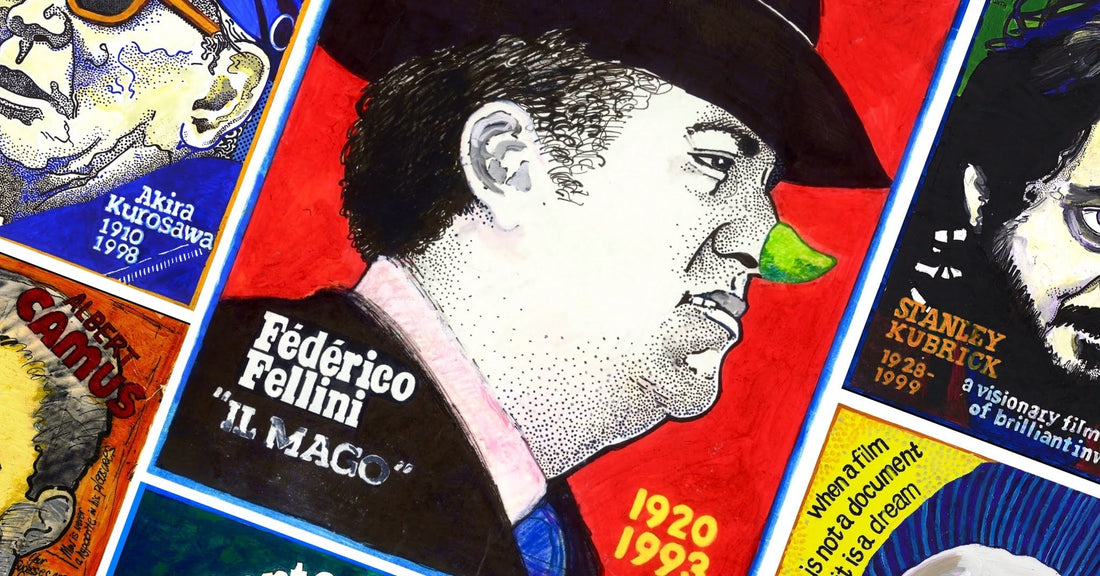
Federico Fellini's Touch on Film
Share
Federico Fellini
Federico Fellini is widely regarded as one of the most influential filmmakers in history. His works are renowned for their surrealism, depth, and exploration of the human condition. His style of filmmaking has had a profound impact on the industry, inspiring many filmmakers to create works that push boundaries and challenge conventional filmmaking techniques.
Fellini's journey to becoming a cinematic icon began in Rimini, Italy, where he was born in 1920. After studying art in Florence, he began his career as a screenwriter before moving on to direct his first feature film, "The White Sheik," in 1952. The film was a commercial success and established Fellini as a promising new talent in Italian cinema.
Fellini's breakthrough came with the release of his film "La Strada" in 1954. The film won the Academy Award for Best Foreign Language Film, and its success catapulted Fellini to international fame. "La Strada" marked the beginning of a string of films that would establish Fellini as a master of cinematic storytelling.
Fellini's films are known for their surreal imagery, non-linear narratives, and dreamlike quality. His use of symbolism, metaphor, and allegory is a key component of his filmmaking style. Fellini was particularly interested in exploring the human psyche and the complexities of human relationships. His films often feature flawed characters who struggle to find meaning and purpose in their lives, and who are searching for something beyond themselves.
One of the most notable examples of Fellini's influence on contemporary cinema is the work of director Terry Gilliam. Gilliam's films, such as "Brazil" and "Fear and Loathing in Las Vegas," are heavily influenced by Fellini's style. The surreal imagery, the blending of reality and fantasy, and the exploration of the human psyche are all hallmarks of Gilliam's work that can be traced back to Fellini.
Other filmmakers who have been influenced by Fellini include Martin Scorsese, Woody Allen, and David Lynch. Scorsese, in particular, has cited Fellini as a major influence on his work. In an interview with The Guardian, Scorsese said, "Fellini was a great inspiration to me, not just in the films themselves, but in the way he went about making them. He was a true artist who was willing to take risks and push boundaries."
Fellini's influence extends beyond the world of cinema. His work has inspired artists in other fields, including music, literature, and visual arts. The Rolling Stones' song "Tumbling Dice" was inspired by Fellini's film "La Dolce Vita," and novelist Salman Rushdie has cited Fellini as a major influence on his work.
In conclusion, Federico Fellini's impact on the world of cinema is immeasurable. His unique style of filmmaking, marked by surreal imagery, dreamlike quality, and exploration of the human condition, has inspired countless filmmakers and artists. Fellini's legacy continues to live on, and his films remain an enduring testament to the power of cinema to explore the depths of the human experience.
